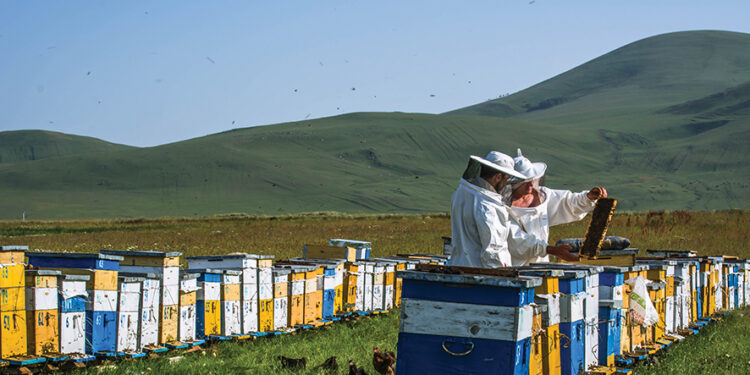Georgian honey, which first entered the European Union market in 2016, has long been known for its unique taste and high quality. Since then, frequent testing of honey samples by the Georgian government has shown a steady decline in antibiotic contamination levels. In 2023, only one out of 100 samples tested showed signs of contamination, a significant improvement. However, this trend has recently reversed, raising concerns about the future of the country’s honey exports.
In 2024, the National Food Agency (NFA) tested 100 honey samples and discovered traces of banned antibiotics in five of them, including metronidazole, chloramphenicol, and tetracycline. These substances are strictly prohibited in food products due to their potential harm to both human health and the environment.
The Source of the Contamination
The presence of antibiotics in Georgian honey is not necessarily intentional. Certain diseases, such as American foulbrood, have traditionally been treated with antibiotics to protect bee colonies, although this practice is increasingly restricted due to international concerns about antibiotic resistance. Nevertheless, some beekeepers may still use banned antibiotics as a temporary solution to financial scarcity, which ultimately affects the quality of the honey and spreads harmful substances to other batches.
In Western Georgia, a major challenge for beekeepers is the spread of tropilaelaps, a parasitic disease that is more aggressive than the varroa mite. Beekeepers struggle with limited resources and poor management practices for dealing with these diseases.
The Decline of Georgian Honey Exports
Despite improvements in production quality, Georgian honey’s export volume has declined in recent years. While Georgian honey gained access to the European market in 2016, adverse weather conditions and competition from cheaper Chinese honey have led to reduced yields and market share.
Additionally, the National Food Agency has faced criticism for delays in testing and reporting honey contamination. Honey samples are often purchased months earlier and tested too late, allowing contaminated products to remain on shelves and eroding consumer confidence.

Challenges in Beekeeping Practices
Antibiotics in honey are often a result of past practices, where beekeepers used them to combat hive diseases. Though regulations prohibiting certain antibiotics in honey production were introduced in 2015, some beekeepers continue to use banned substances, either out of desperation or a lack of awareness of the risks.
Experts emphasize that the National Food Agency lacks the proper resources for a comprehensive testing framework, leaving many smaller beekeepers vulnerable and without the support needed to adopt safer, more sustainable production methods.
Improving quality control is crucial to sustaining Georgia’s honey industry. Experts recommend stronger regulations and more support for beekeepers to help drive exports.
By Mariam Razmadze














